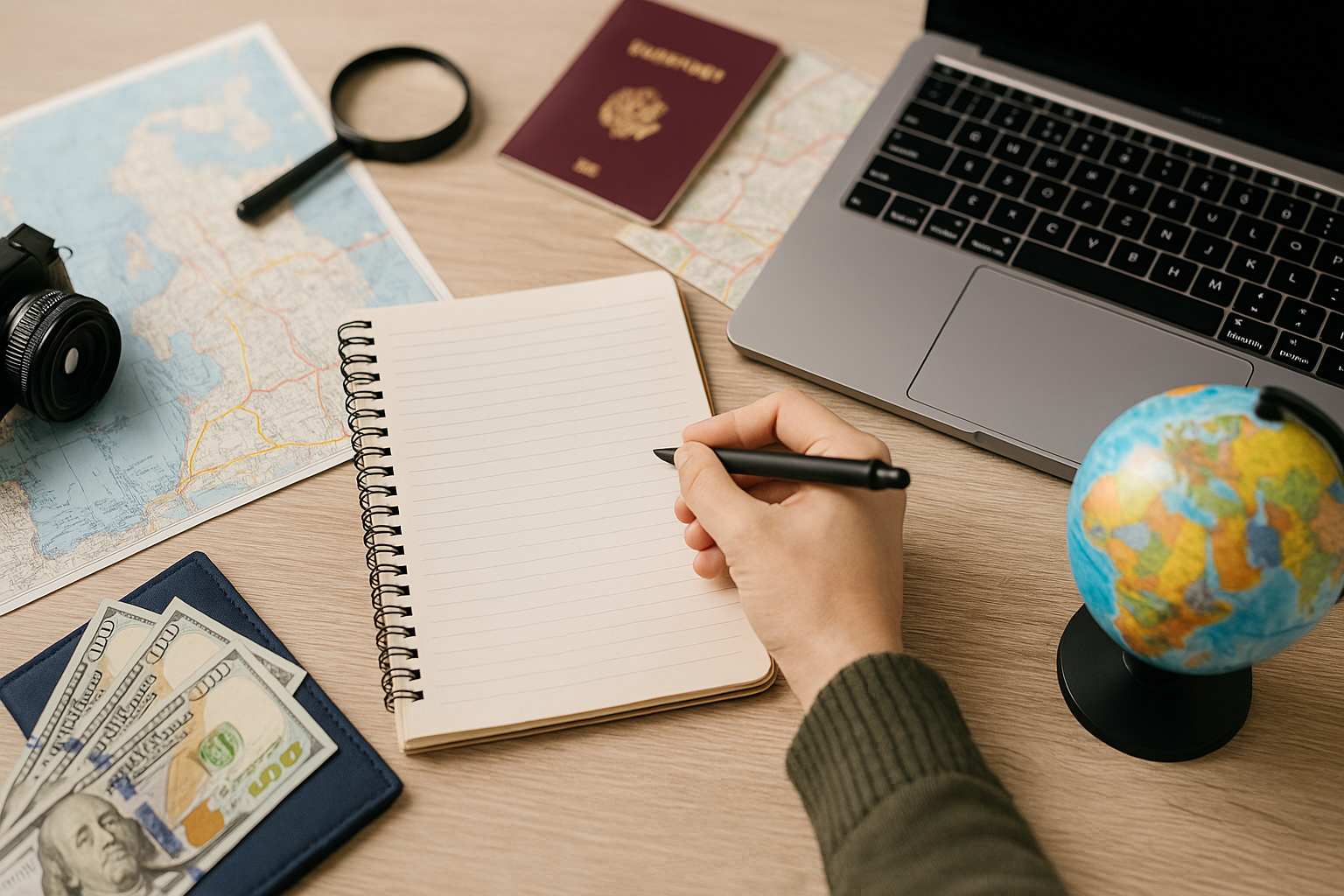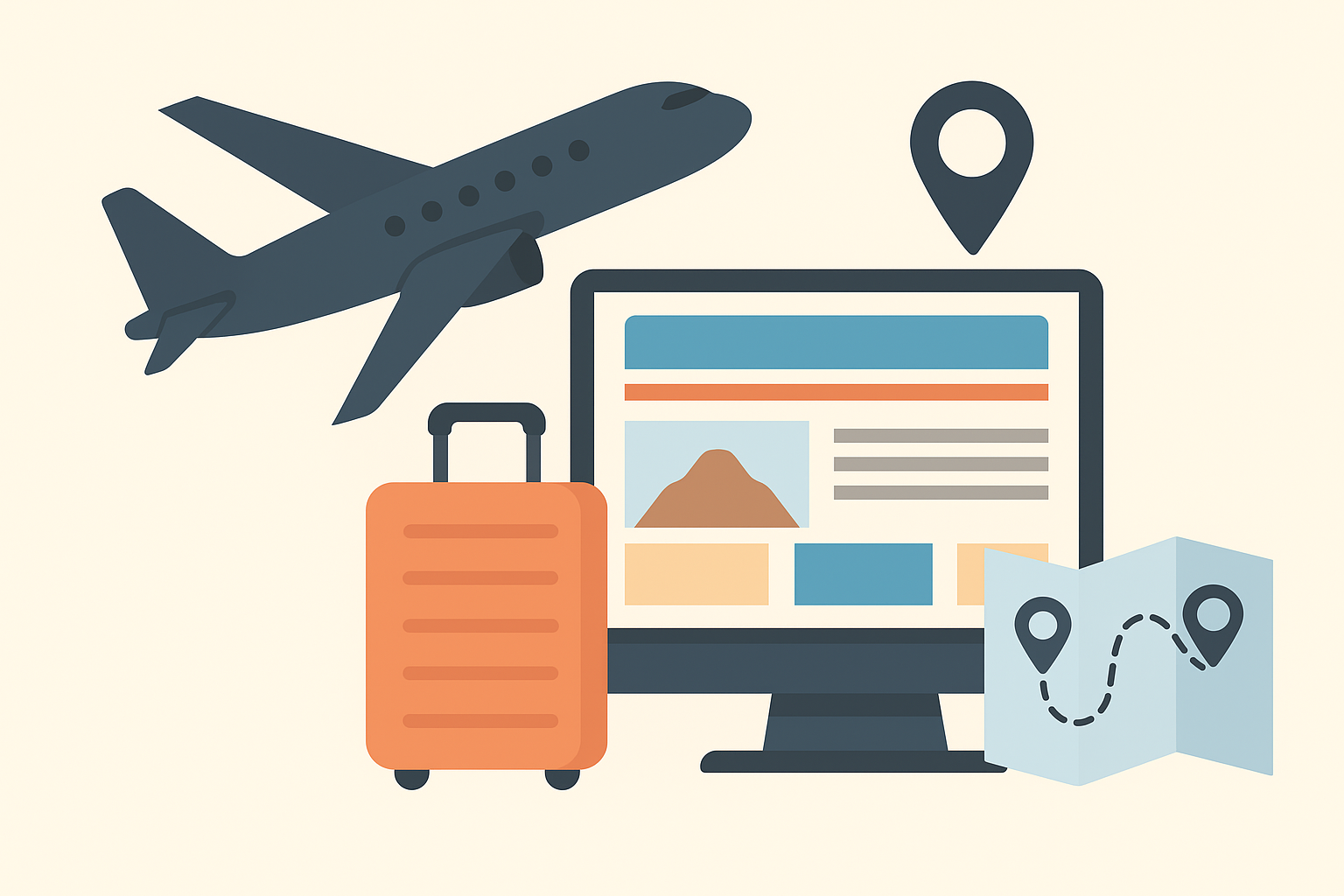With global tourism bouncing back stronger than ever in 2025, many people with a passion for travel and service are looking to turn that love into a business. Starting your own travel business — whether it’s a small local tour company or a full-fledged travel agency — is more accessible today than ever before.
But a successful travel business involves more than just booking fun trips. To succeed, you need clear planning, legal structure, marketing strategies, and a scalable way to attract and manage customers.
This comprehensive guide is designed to walk you through everything you need to know before you launch — especially if you’re just starting out.
Understand the Different Types of Travel Businesses
Before diving in, it’s important to define what kind of travel business you want to start. The industry is broad, and each model has different requirements, markets, and operating methods.
Common types include:
- Inbound Tours – Organize trips for foreign travelers coming into your country
- Outbound Tours – Plan tours for locals traveling abroad
- Domestic Tours – Offer tours within your own country or region
- Niche Tours – Focus on specific interests, like wellness retreats, food tours, senior travel, or solo female trips
💡 Tip: Choose the model that best fits your background, interests, and available market.
Licenses and Legal Requirements Are Non-Negotiable
One of the most important steps in starting a travel agency is making it legal. Depending on your country or state, you may need to register your company, apply for a business license, and most likely — a travel business operating license.
Some governments also require a financial guarantee or security deposit, and you may need professional liability insurance, especially if you’re handling international travel or group bookings.
💡 Research local laws or consult a business attorney before taking bookings — operating without a license could put you at serious legal risk.
Plan Your Budget — It Doesn’t Have to Be Huge
You don’t need millions to get started, but you do need a realistic financial plan.
Start-up costs may include:
- Registering your business name
- Legal and licensing fees
- Building a basic website
- Branding (logo, marketing materials, social profiles)
- Advertising (Google, Facebook, etc.)
- Familiarization trips (testing your tour routes)
- Initial working capital for staff or freelancers
💡 Start small. Focus on one destination or tour style before scaling.
Build a Professional Travel Agency Website
In 2025, having a professional travel agency website is not optional — it’s your digital storefront.
Your website should include:
- Information about your agency, team, and credentials
- A clear list of tour packages with images, prices, and itineraries
- An inquiry or booking form
- Testimonials or reviews from real customers
- A blog or travel articles to support SEO
- Direct contact options (WhatsApp, Messenger, Line, Email)
A well-designed website builds trust and helps you compete even with larger agencies.
💡 Bonus tip: Make your site mobile-friendly — most users browse on their phones!
Learn Online Marketing — It’s Your Sales Engine
You might have the best tour package in the world, but if no one sees it, you won’t sell it. That’s why digital marketing is essential.
Beginner-friendly tools and strategies:
- Facebook & Google Ads – Promote your packages to a target audience
- SEO – Help your website rank for keywords like “Thailand tour 2025” or “affordable Europe tours”
- Line OA / WhatsApp Broadcast – Keep in touch with leads
- YouTube / TikTok / Instagram Reels – Create travel content to build a following
💡 Even if you hire a freelancer or agency, you should understand the basics — it helps you measure success and protect your budget.
Find Your Unique Value — Then Build Your Brand Around It
Why should someone book with you and not the travel agency down the street (or on page one of Google)?
That’s where your unique selling proposition (USP) comes in.
Ask yourself:
- Who is my ideal customer? (Families, couples, solo travelers?)
- What makes my tours special? (Private guides, cultural immersion, hidden gems?)
- What tone and personality do I want for my brand? (Luxury? Adventure? Fun and casual?)
Define this early and use it in your website, social media, and ads. A clear brand = better recall and more referrals.
Operations Matter: Don’t Just Sell the Tour, Deliver It Flawlessly
Behind every successful travel business is strong operations. Once you begin selling, you’ll need systems for:
- Creating quotes and invoices
- Coordinating bookings with hotels, airlines, and local guides
- Managing tour schedules and staff
- Tracking payments and expenses
- Collecting customer feedback and resolving complaints
As you grow, you can use tools like:
- Booking management software
- Accounting systems
- CRM platforms (Customer Relationship Management)
- Chatbots or auto-replies for customer inquiries
💡 The smoother your operations, the better your reviews — and reviews are gold in this business.
Start Small — You Don’t Need to Be Perfect on Day One
Many first-time entrepreneurs fall into the trap of overplanning. But in the real world, experience is the best teacher.
Ways to start small:
- Begin with weekend tours in your city
- Offer private, customizable trips for families or groups
- Freelance as a travel planner before going full-time
- Partner with other agencies and take a commission
💡 Your first customers will help shape your business. Don’t be afraid to evolve based on real feedback.
Final Thoughts: You Can Start a Travel Business in 2025
If you’ve ever dreamed of turning your love for travel into a business — this is your year. Tourism is rebounding, technology has made launching easier than ever, and there are endless niche markets waiting to be served.
Just remember: a successful travel business starts with purpose, strategy, and action.
You don’t have to wait until you feel “100% ready.” Start with what you know, plan wisely, and build from there.



